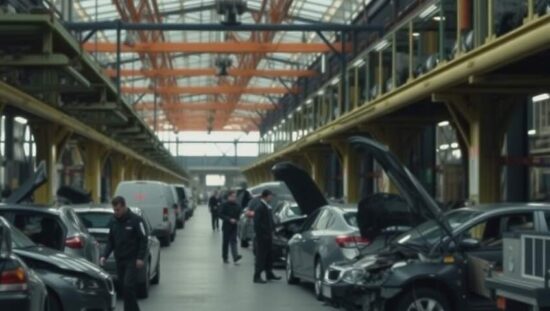Automotive Industry Faces Growing Job Losses, Sparking Union Criticism
Germany’s automotive sector is grappling with a significant downturn, evidenced by the loss of over 50,000 jobs last year, representing nearly seven percent of the workforce, according to a recent analysis by consultancy firm EY. This alarming statistic has drawn sharp criticism from IG Metall, Germany’s powerful metalworkers’ union, which is warning against further job cuts and a perceived lack of strategic vision from industry leadership.
Christiane Benner, First Chairperson of IG Metall, directly challenged the prevailing industry response to market pressures, arguing that the knee-jerk reaction of simply eliminating positions or relocating production is “shortsighted”. The union leader’s remarks, published in several Funke-Mediengruppe newspapers, highlighted a growing tension between labor representatives and management within the crucial German industry.
Benner’s pointed commentary did not shy away from questioning the competence of top executives, suggesting they lack the “strategic foresight and innovative spirit” needed to navigate the sector’s rapid transformation driven by electric mobility and digital disruption. Her suggestion that managers might themselves need to seek alternative employment marks a dramatic escalation in the union’s criticism, reflecting the depth of concern regarding the industry’s trajectory and the impact on German workers.
The job losses are attributed to a complex interplay of factors including declining global demand, geopolitical uncertainties and the massive investments required to transition to electric vehicle production. However, the union maintains that the responsibility for mitigating the impact on employees rests heavily on the shoulders of those at the helm.
The escalating situation raises broader questions about the future of Germany’s industrial heartland and the government’s role in protecting jobs and fostering sustainable growth. While industry leaders are emphasizing the need for investment and restructuring, IG Metall is demanding a more concerted effort to protect existing jobs and prioritize worker well-being throughout this challenging period. The potential for further industrial restructuring and the implications for German employment have now entered a critical and politically charged phase.





